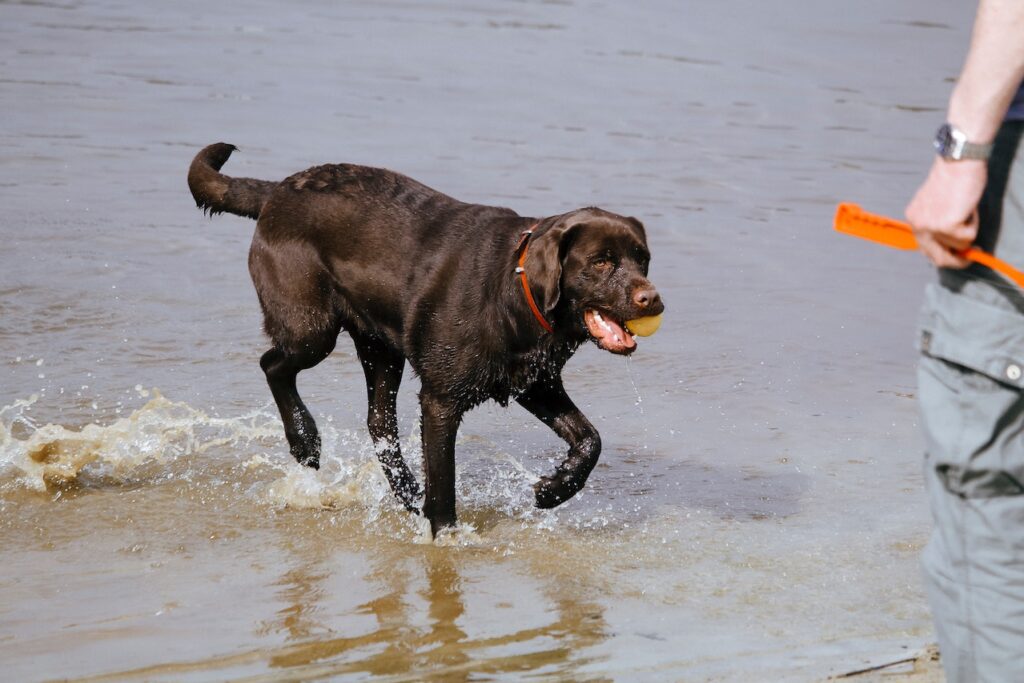Labradors are often considered one of the most popular dog breeds around the world. Their friendly nature, playful behavior, and adorable looks make them a favorite among many families.
However, some people believe that Labradors are not the best choice for a pet. In this article, we will explore the reasons why some individuals think that Labradors are the worst dogs.
1. High Energy Levels

One of the primary reasons why some people find Labradors challenging as pets is their high energy levels. Labradors are known for being very active and enthusiastic.
While this can be great for families who lead an active lifestyle, it can be overwhelming for those who prefer a more relaxed pace.
2. Constant Need for Attention
Labradors are incredibly social dogs, and they thrive on human interaction. They often demand attention and can become anxious or bored if left alone for extended periods. For individuals who have busy schedules or need a more independent pet, this constant need for attention can be a drawback.
3. Tendency to Chew

Like many puppies, Labradors have a natural inclination to chew on things. While it is a common behavior for all young dogs, Labradors can take it to another level.
Their strong jaws and boundless energy mean that they may chew on furniture, shoes, and other household items, which can be frustrating for their owners.
4. Not Suitable for Small Living Spaces
Labradors are large dogs, and they require ample space to move around comfortably. For people living in small apartments or houses with limited outdoor areas, having a Labrador may not be the best option. These dogs need room to roam and play freely.
5. High Grooming Needs

Labradors have a thick double coat that sheds regularly, especially during certain seasons. This can lead to an abundance of loose hair in the house, which can be bothersome for some owners, particularly those with allergies.
6. Prone to Health Issues
Like any dog breed, Labradors are susceptible to certain health problems. These may include hip dysplasia, obesity, and certain genetic conditions. Taking care of a Labrador’s health can be demanding and expensive.
7. Strong Pulling on Leash

Labradors are strong dogs, and they may have a tendency to pull on their leashes during walks. This behavior can be challenging to manage, especially for children or elderly individuals who may have difficulty controlling the dog’s strength.
8. Difficulty in Training
Although Labradors are highly intelligent, they can be stubborn when it comes to training. Their strong will and sometimes short attention spans can make the training process more time-consuming and frustrating.
9. Water Obsession

Labradors are famously fond of water. While this may seem endearing, it can also pose some challenges. If not supervised, they may jump into swimming pools, ponds, or lakes, potentially putting themselves in dangerous situations.
10. Expensive to Care For
Labradors require regular veterinary check-ups, proper nutrition, and exercise to ensure they stay healthy and happy. The costs associated with owning a Labrador can be substantial, and some families may find it difficult to manage these expenses.
11. Potential for Destructive Behavior

Due to their high energy levels and need for mental stimulation, Labradors can display destructive behavior when bored or left alone for extended periods. This behavior can include digging, chewing, and excessive barking.
12. Shedding and Allergies
As mentioned earlier, Labradors shed quite a bit, which can be problematic for people with allergies. Additionally, their fur can stick to furniture and clothing, requiring regular cleaning and maintenance.
Conclusion
While many people adore Labradors for their friendly and playful nature, they may not be the ideal pet for everyone. Their high energy levels, constant need for attention, and potential for destructive behavior are aspects that some individuals find challenging.
However, with proper training, care, and commitment, Labradors can still make loving and loyal companions for the right families. It’s essential to weigh the pros and cons before deciding if a Labrador is the right fit for your lifestyle and preferences.
FAQs about Labradors
Q1: Are Labradors good with kids?
Yes, Labradors are generally excellent with kids. They are known for their friendly and gentle nature, making them great family pets.
Q2: Do Labradors require a lot of exercise?
Yes, Labradors are an energetic breed and need regular exercise to stay healthy and happy.
Q3: Can Labradors be left alone at home?
Labradors don’t do well when left alone for long periods. They need human companionship and can become anxious or bored if left alone.
Q4: Are Labradors easy to train?
While Labradors are intelligent, their strong will can make training a bit challenging. Consistent and patient training is necessary.
Q5: Do Labradors get along with other pets?
Generally, Labradors are social dogs and can get along well with other pets if properly introduced and socialized.
Q6: Are Labradors good guard dogs?
A6: Labradors are friendly and social, which makes them poor guard dogs. They are more likely to greet strangers with wagging tails than show aggression.
Q7: How often should I groom my Labrador?
Labradors need regular grooming, including brushing to manage their shedding and keep their coat healthy.
Q8: Are Labradors suitable for apartment living?
Due to their size and energy levels, Labradors are better suited for homes with ample space and access to outdoor areas.
Q9: Can Labradors be trained for specific tasks?
Yes, Labradors are versatile and can be trained for various tasks, such as therapy work, assistance dogs, and search and rescue.
Q10: Are Labradors good swimmers?
Yes, Labradors are excellent swimmers and often enjoy water-related activities.

